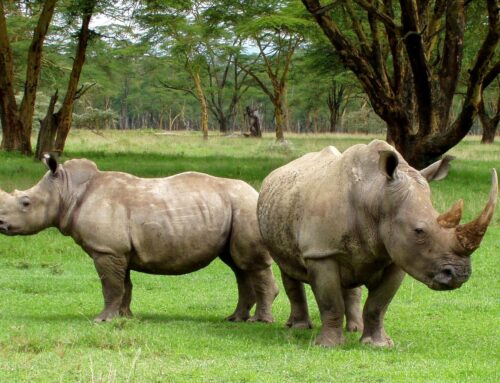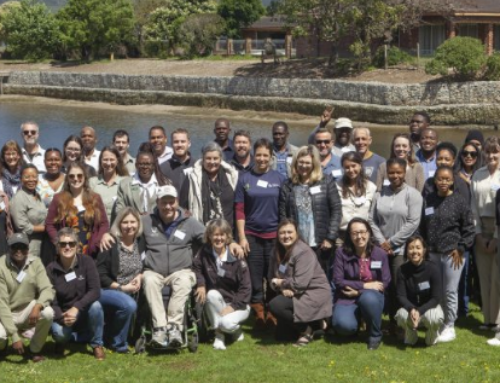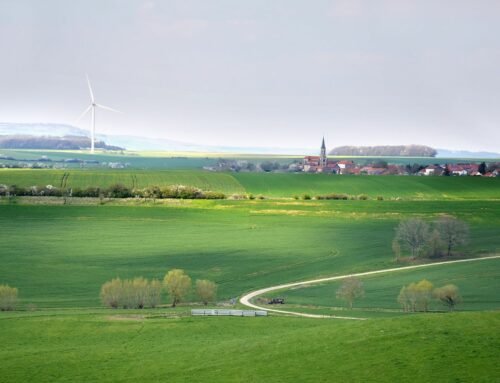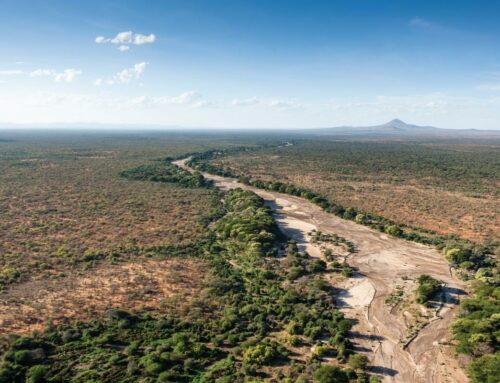Project background
The Limpopo River Basin is a complex transboundary system that supports more than 18 million people across the riparian states of Botswana, Mozambique, South Africa, and Zimbabwe. Most of this population is rural and poor, and heavily dependent on subsistence agriculture. The basin is an important agricultural area, has extraordinary mineral resources, is exceptionally rich in biodiversity, and supports a significant tourism industry. More than 60% of Botswana’s population resides in the Limpopo and it contains some of South Africa’s major urban and industrial centres. The system comprises biophysical and human sub-systems and drivers, all of which interact to present a composite picture of vulnerability. As the Limpopo River Basin approaches water resources closure (i.e., there is no more water left to allocate), choices need to be made about the future management of this river basin system, and decisions need to be taken, at a transboundary level, on actions that will promote equitable resilience.
The Okavango River, which flows from the Angolan highlands, through north-eastern areas of Namibia, and into the Okavango Delta in northern Botswana, is home to more than 1 million people, where poverty is prevalent. The Okavango River ends in one of the world’s few endorheic deltas (i.e., a closed drainage basin that retains water and allows no outflow), which has been relatively un-impacted by human activity. The Okavango River Basin is recognised as an internationally important site of biodiversity and biological production, hosting two Ramsar sites (i.e., wetlands of international importance), with the Delta itself being a UNESCO Heritage site. However, the basin is experiencing increasing urbanisation associated with population growth and a lack of alternative livelihood options. Angola recently emerged from a civil war, where most people had sought refuge in the capital city, Luanda. With the war now over, plans to resettle in areas such as the Okavango are advanced, and is likely to increase pressure on its natural resources. Increased urbanisation and pressure to resettle will lead to increased demand for
services such as water supply and sanitation, which if not regulated, could lead to increased water pollution and inequitable access to water.
The Resilient Waters Project, funded by USAID Southern Africa, aims to build more resilient and water secure Southern African communities and ecosystems through improved management of transboundary natural resources and increased access to safe drinking water and sanitation services. To achieve this objective, Resilient Waters collaborates with regional institutions, including river basin organisations (RBOs) and Transfrontier Conservation Areas (TFCAs), to examine the critical intersection of social-ecological systems. Resilient Waters focuses on the Okavango and Limpopo river basins, with the aim of improving transboundary water security, increasing access to safe drinking water, strengthening ability of communities to adapt to climate change, and conserving biodiversity and ecosystems.
Opportunity for Masters or PhD student
A resilience approach to sustainability focuses on how to build capacity to deal with unexpected change. This approach moves beyond viewing people as external drivers of ecosystem dynamics and rather looks at how we are part of and interact with nature and ecosystems. One of the main ways in which people depend on and interact with the biosphere is through their use of different ecosystem services. People also change nature in a myriad of ways through activities such as agriculture and building roads and cities. A resilience thinking approach tries to investigate how these interacting systems of people and nature – or social-ecological systems – can best be managed to ensure a sustainable and resilient supply of the essential ecosystem services on which humanity depends.
The concept of social-ecological resilience is gaining traction in both research and policy arenas, yet it has attracted criticism for failing to address social vulnerability and engaging with issues of equity and power. We seek a Masters or PhD student to engage in a collaborative process with stakeholders in the Okavango and/or Limpopo river basins to advance understanding on how resilience thinking can be applied to complex development challenges in these contexts. The student’s research should explore how resilience-based development interventions can lead to transformative change out of poverty and into more sustainable livelihoods.
We seek a Masters or PhD student who is interested in addressing one or a combination of the following questions for the Okavango or Limpopo river basins:
– Exploring resilience from a social-ecological justice perspective: advancing understanding on who wins and loses from decisions made related to natural resources, and what are the cross-scale impacts and relationships between different elements or components of a system especially within a transboundary context;
– Exploring social-ecological leverage points in systems: understanding how to facilitate transformative change – what methods and/or processes can identify these potential transformation ‘pivots’, and determine how and when to intervene in these systems;
– How the sustainable development goals (SDGs) can guide resilience building and/or measurements: current work on the SDGs has been primarily conceptual at aggregate and higher scales, and with little context. Within this topic, the objectives will be to (1) downscale SDG interactions to a catchment level and identify trade-offs and synergies between them at that level; and (2) to explore how these interactions improve or dampen resilience.
Call for applications
We seek a motivated individual to contribute to exploring resilience and leverage points from a social-ecological justice perspective. This project will involve applying social-ecological assessments, systematic literature reviews, exploring case studies using transdisciplinary approaches, and applying participatory knowledge co-production methods. The ideal candidate should have a strong academic track-record and analytical skills, possess a keen interest in sustainability issues and social-ecological systems, an interest and ability to integrate across the social and natural sciences, and be an independent thinker who is open to collaboration and keen to participate in the events and activities of the CST. Experience in conducting interviews and running focus groups will be advantageous.
The successful candidate will be registered at Stellenbosch University and supervised by Dr Nadia Sitas and/or Dr Odirilwe Selomane based at the Centre for Complex Systems in Transition (CST), Stellenbosch University. A co-supervisor will be identified based on the specific interests of the student, which will also determine which department the student registers within (options include the School of Public Leadership, Geography, Sociology, or Conservation Ecology and Entomology – all at Stellenbosch University). Successful candidates are expected to commence their degree at Stellenbosch University in January 2020.
Bursary value
Masters full-time over 2 years: R100 000 p.a., excluding field costs.
PhD full-time over 3 years: R150 000 p.a., excluding field costs.
Requirements
Applications are invited from Southern African nationals from the following countries: Angola, Botswana, Lesotho, Mozambique, Namibia, South Africa, Zambia, and Zimbabwe.
All students applying for a Masters degree should have completed a three-year undergraduate degree and one-year Honours degree, or equivalent to be eligible. All candidates should show evidence of strong scholarly performance and commitment to publishing. If applying for a PhD, a Masters degree is required. Stellenbosch University will only accept students who meet the minimum academic requirements from recognised higher education institutions.
Students need to be able to communicate and write in English. Preference will be given to students who can work independently, are well organised, and who will be willing to participate in the regular activities of the CST at Stellenbosch University.
To apply
Interested candidates should send electronically:
- a motivation letter detailing why you are well-suited to undertake this project, including your previous experience, your general area of interest, as well as your specific interest in this project and project-related ideas,
- a 2-page CV that includes your academic record, previous work experience, any scientific publications on which you have been an author, and the names and contact details of at least two academic referees,
- transcripts of university-level academic qualifications,
- at least one example of recent written work (e.g. a paper, report, or thesis chapter).
Applicants possessing the prescribed minimum qualifications are invited to submit the above required documents electronically with a subject line “Equitable Resilience Masters research” (for Masters applicants) and “Equitable Resilience PhD research” to Dr Waddell at CST: joywaddell@sun.ac.za.
We encourage you to submit your application as soon as possible, but latest by Monday 30th September.
CST and Stellenbosch University reserves the right to not fill the post if there are no suitable candidates who meet the requirements.












